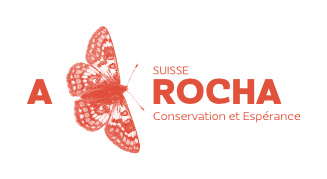Pacasmayo Province
La Libertad Deparment
La Libertad Deparment
Some of the last Pacific dry forest remnants are found along Peru’s northern coastline in the departments of Tumbes, Piura, Lambayeque and La Libertad. Despite their great importance, Peruvian coastal dry forests are being drastically reduced in size due to anthropogenic activity. In La Libertad the dry forests are suffering some of the starkest reductions, directly threatening flora and fauna dependent on the ecosystem.
Currently, under 5% of the dry forests still exist in Peru, making it an international conservation priority. A few dry forest remnants can be found scattered across the provinces of Ascope, Chepen, Pacasmayo, Trujillo, and Viru, which are of incalculable worth and the only natural remnants along the La Libertad coast. As such, urgent action is now needed to restore and sustainably manage dry forests in La Libertad to protect the unique biodiversity they harbour and for the benefit of its local population.
The objective of the project is to restore, conserve and sustainably manage dry forest landscapes for the benefit of nature and society. In the first year of the project, we will work with the communities in the Pacasmayo province to restore the degraded dry forest landscapes working on four components: 1) Conservation, 2) Applied Research, 3) Capacity Building, and 4) Knowledge Management.
The project will have a significant long-term impact by providing a thriving habitat for endangered wildlife and a vital natural resource for the local community and future generations. The knowledge and skills gained by beneficiaries will be shared within families and the wider community, creating a catalyst for change.
The project aims to restore the dry forest ecosystem with native species.
We work with the local community to conserve and restore remnants of the dry forest with native tree species, such as the ‘Algarrobo’ seedlings (Prosopis spp.). This includes the restoration of degraded farmland working with local farmers and using agroforestry species to provide a sustainable alternative to boost their incomes. We will use a combination of traditional planting techniques and the innovative technology ‘COCOONs’ in the planting campaigns which ensures tree survival. We will also work with local community members to implement ecological ovens, which will reduce the impact of the use of charcoal and firewood.
Our work is supported and informed by our applied research activities.
Our research priorities are: i) To monitor endemic flora and fauna of the region, and ii) To identify patterns of firewood use. Through researching endemic flora and fauna, we will raise awareness of the conservation priorities of the region, and monitor their use of the habitat as we have impact. We will apply the research into firewood to improve our intervention. We will also research, evaluate and select agroforestry species that can be used to restore degraded farmlands. We work directly with local farmers to select suitable agroforestry species that can support their livelihoods and live harmoniously with the dry forest.
Our goal in capacity building is to work with the community to ensure the sustainability of the dry forest management and conservation efforts.
We will provide key training to local community members in sustainable productive activities, such as the production of algarrobina (a profitable syrup made from the algarroba). We will train the local community in dry forest conservation, and provide environmental leadership training which will empower the communities of La Libertad to be the forerunners in dry forest conservation efforts.
We will raise awareness about the importance of dry forest conservation through strategic communications and publications.
The experiences and knowledge that are a result of the project will be systematized and shared with other organisations. An objective of the component is to ensure that the results and intervention that we have implemented can be replicated in other initiatives to conserve the dry forest.
